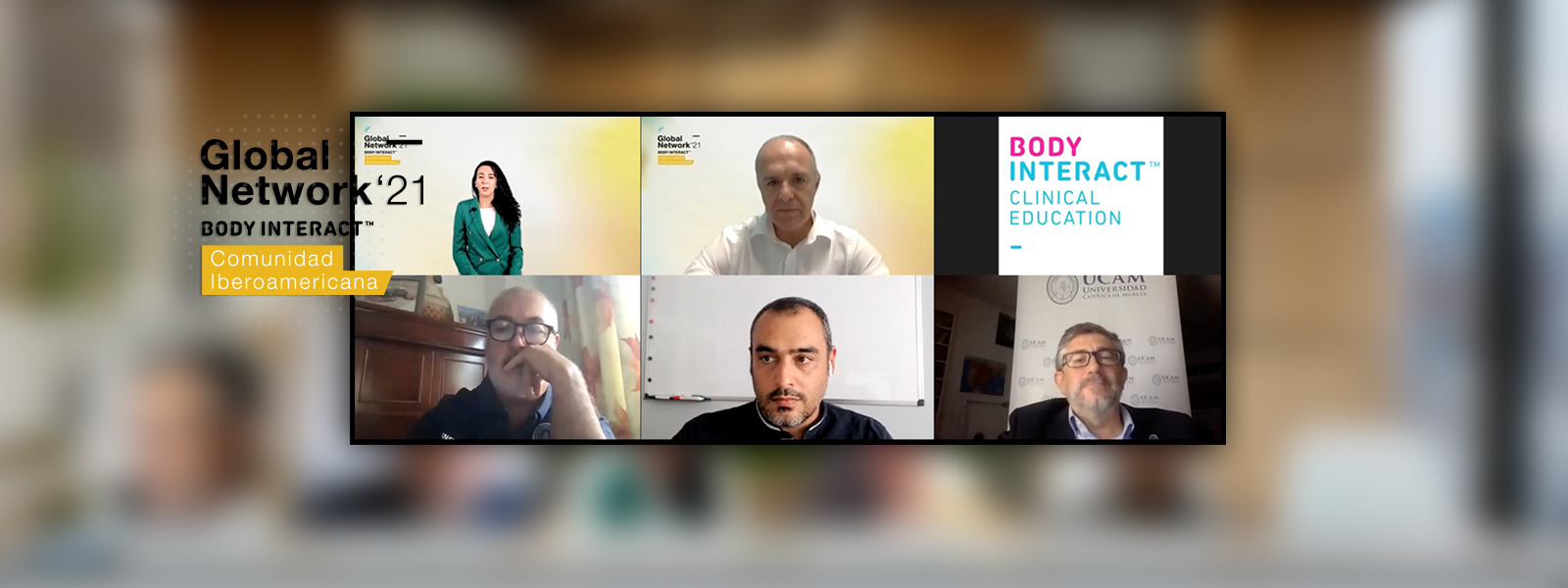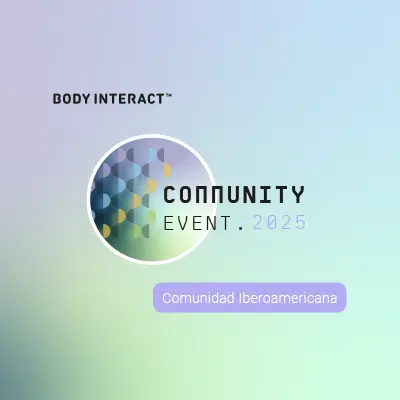
Presentation by Professor Oscar Oliva
From the nursing department of the Universidad Europea Madrid (UEM), Professor Oscar Olivia was part of the speakers’ panel at the Global Network Event Ibero-American Community. Not only does Profesor Oscar coordinate the simulation area and teaches at the nursing department at UEM, as he also works as a nursing practitioner in pediatrics and neonatology.
During his presentation, Professor Oscar had the chance to share his experience with the implementation of virtual patients in the Nursing degree.
In 2017 a new study plan was developed in UEM in which 80% of the classes were done with clinical training either in-person or through simulation tools, such as Body Interact.
Nevertheless, within the new and complex situation caused by the pandemic, educators started asking themselves how they could achieve the same outcomes, in terms of clinical reasoning development, without the possibility of seeing real patients.
Body Interact as the solution
As a solution to the mentioned problem, UEM bet all its chips on Body Interact – Virtual Patient Simulator – in order to provide the clinical training required by the curriculum and achieve the same results as in the previous methodology.
One of their strategies was to record videos solving a clinical scenario making common and expected mistakes so that the student would understand the impact their choices would have on the patient’s condition and the reason why it was not correct to do it.
Additionally, at the end of each clinical case, the simulator provides detailed information on case resolution, providing the opportunity to generate a debriefing and the case discussion. Thus, each time students were challenged to solve a scenario individually or in groups, the professors would take the chance to analyze the performance and discuss the outcomes with them. Therefore they could share how they felt and the rationale behind the decisions taken.
Lastly, the students would have the chance to repeat the scenario once again and try to follow the professor’s indications on how to properly manage the patient.
Assessing students with the help of virtual patients
The evaluation was also part of each subject. Communication, safety, patient assessment were some of the parameters adapted to the Virtual Patient Simulator.
Get the chance to review Prof. Oscar Olivia’s full presentation and get to know their practical examples of how they performed this evaluation.
According to Professor Oscar students from the Nursing Degree at UEM, the major benefits of Body Interact are:
- Chance to repeat the clinical scenarios
- The existence of different levels of difficulty adapted to the knowledge levels of the students
- Development of clinical reasoning and decision-making skills
Furthermore, the university developed clinical scenarios adapted to the Nursing curriculum answering to their own needs.
by Rita Flores – Body Interact Mkt and Commmunication Responsible








